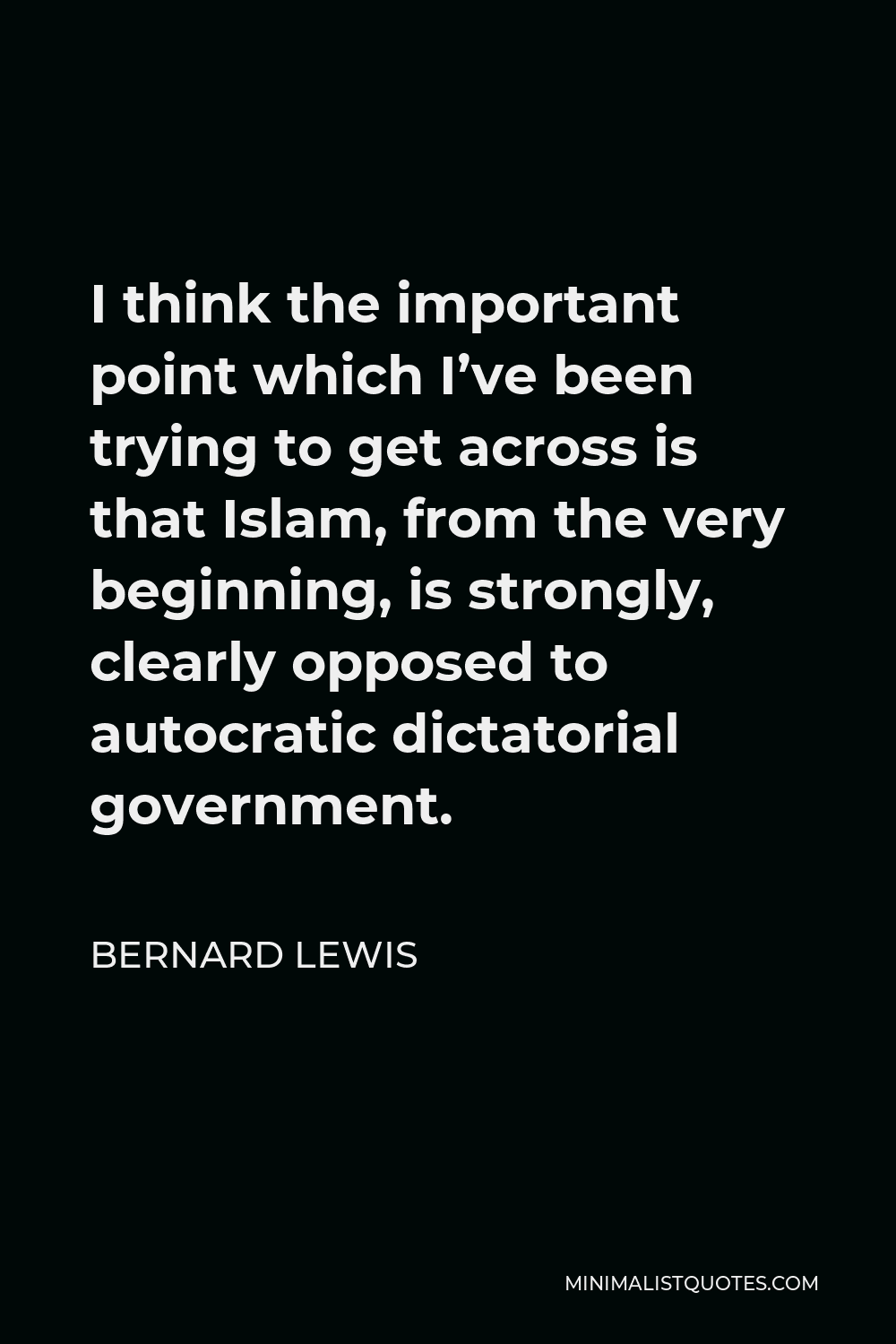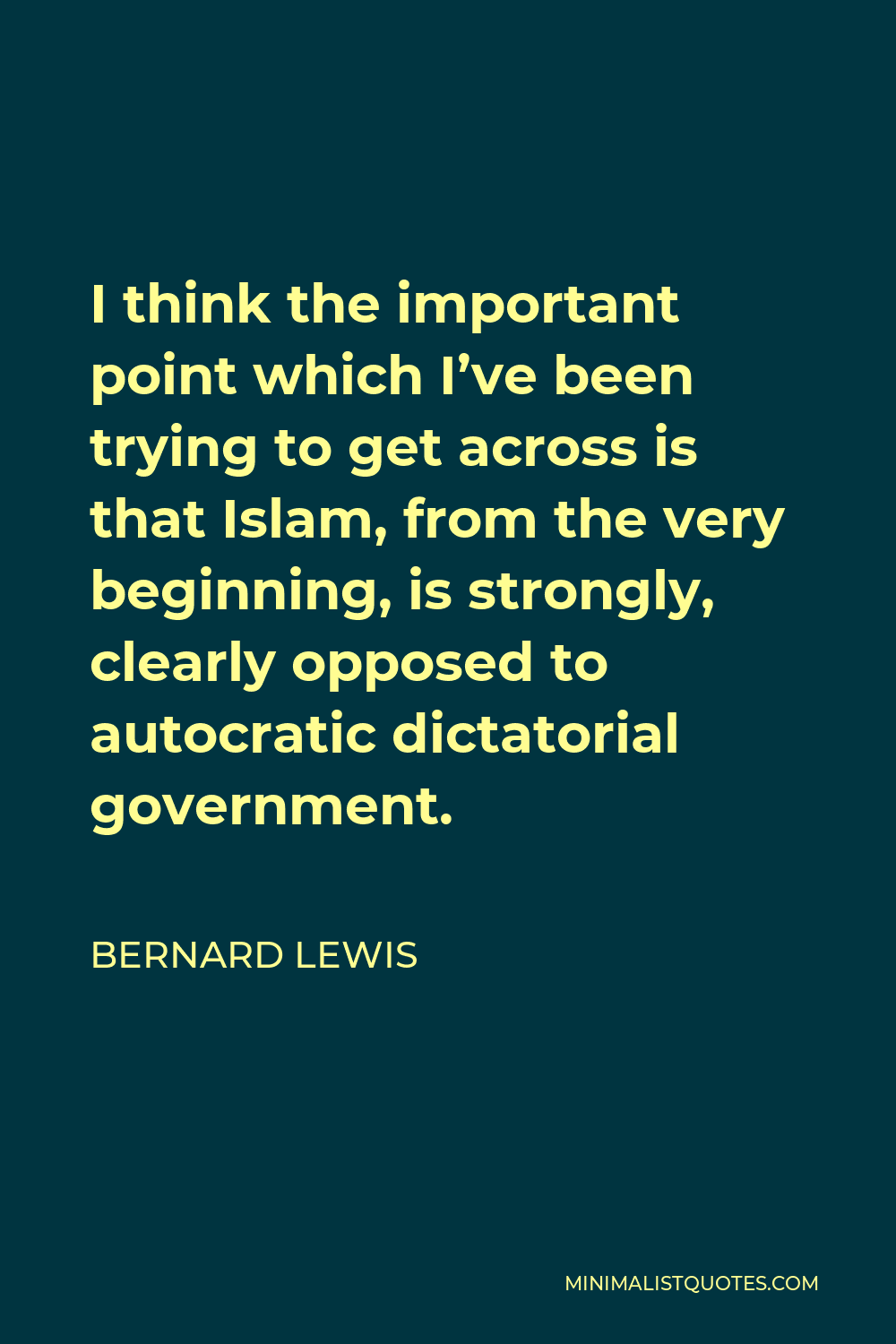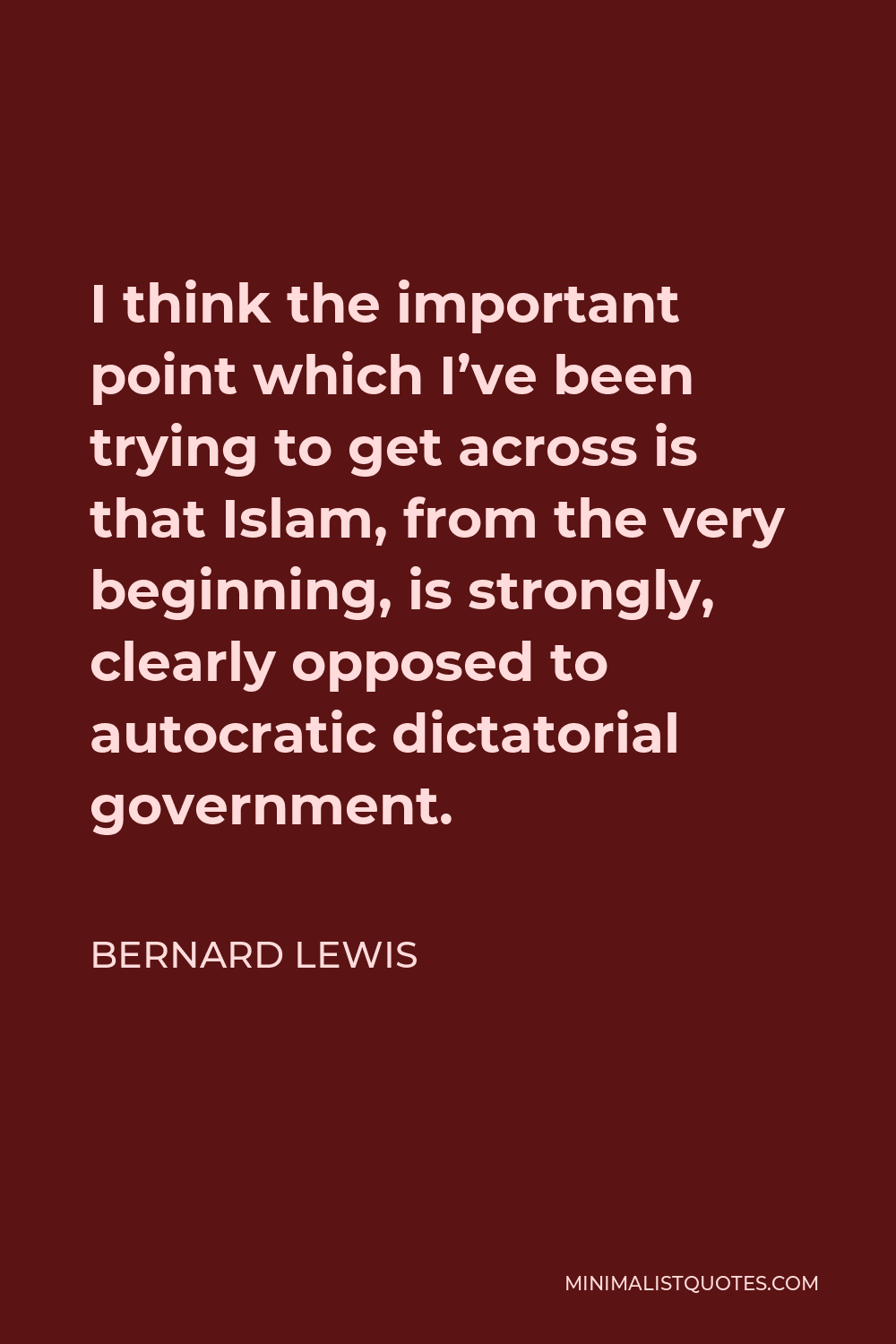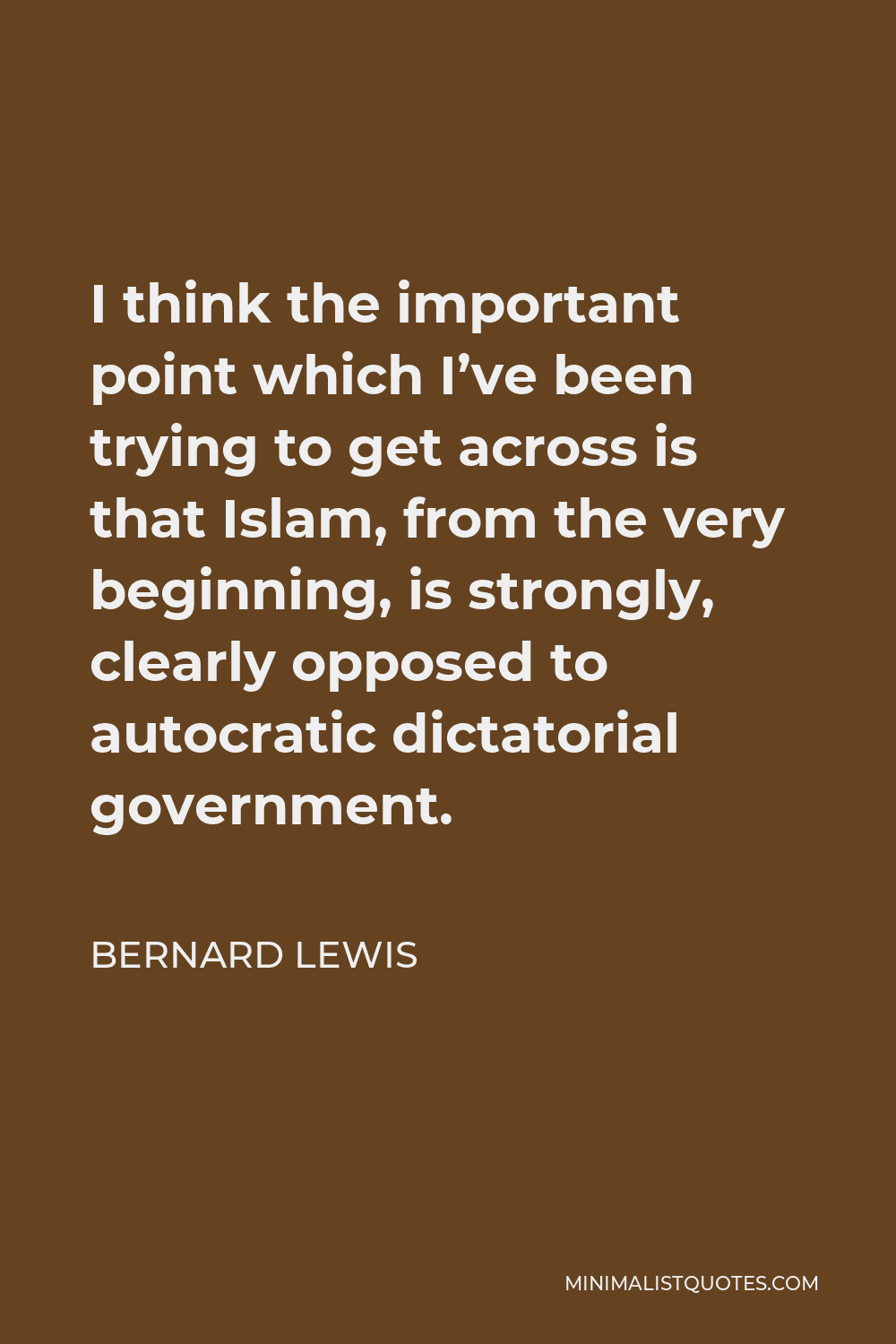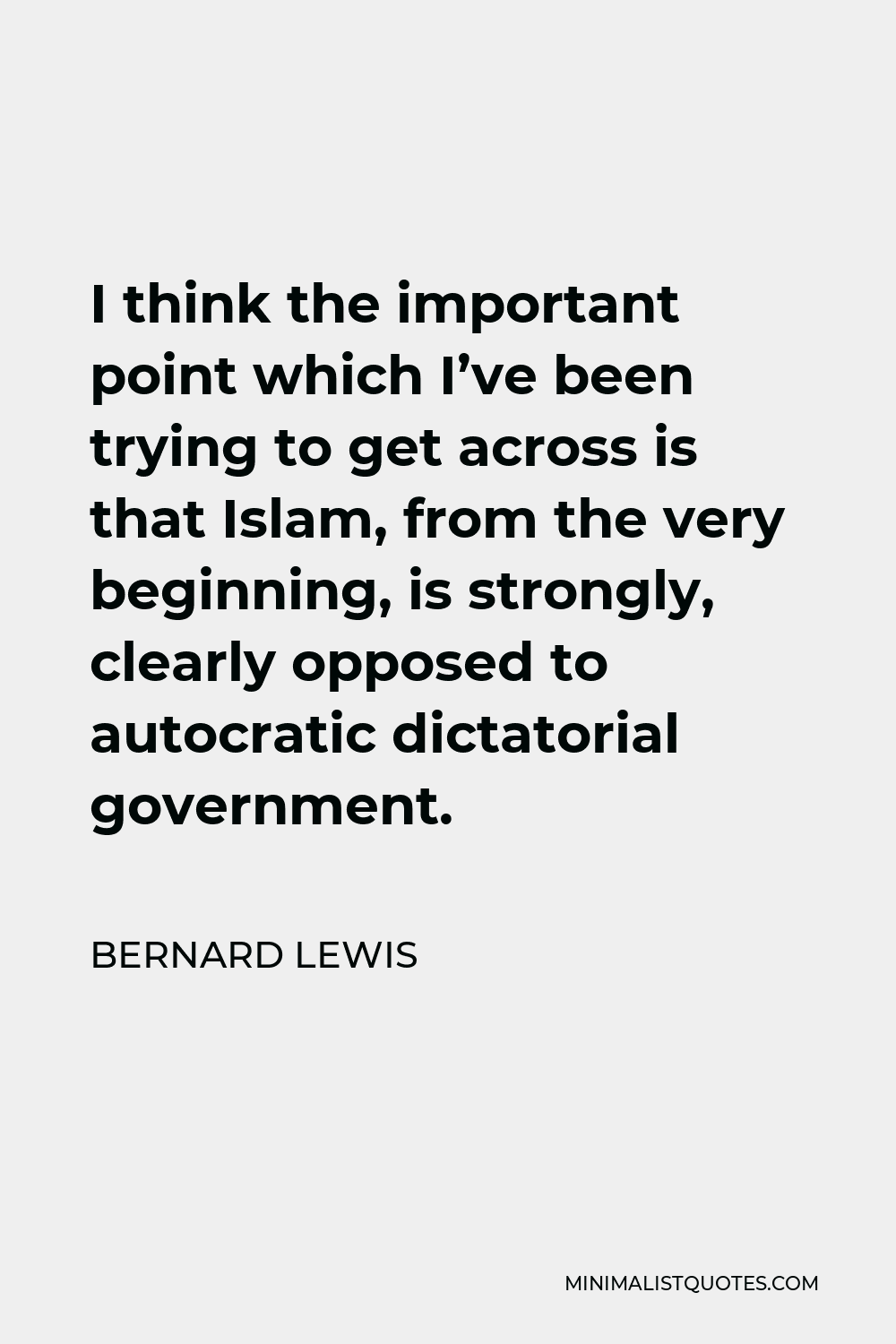Mohammad founded a state which soon became an empire, so that Islam from the very beginning is involved with government, with politics. And therefore there is a very clear strong political tradition in Islam.
BERNARD LEWISI think the important point which I’ve been trying to get across is that Islam, from the very beginning, is strongly, clearly opposed to autocratic dictatorial government.
More Bernard Lewis Quotes
-





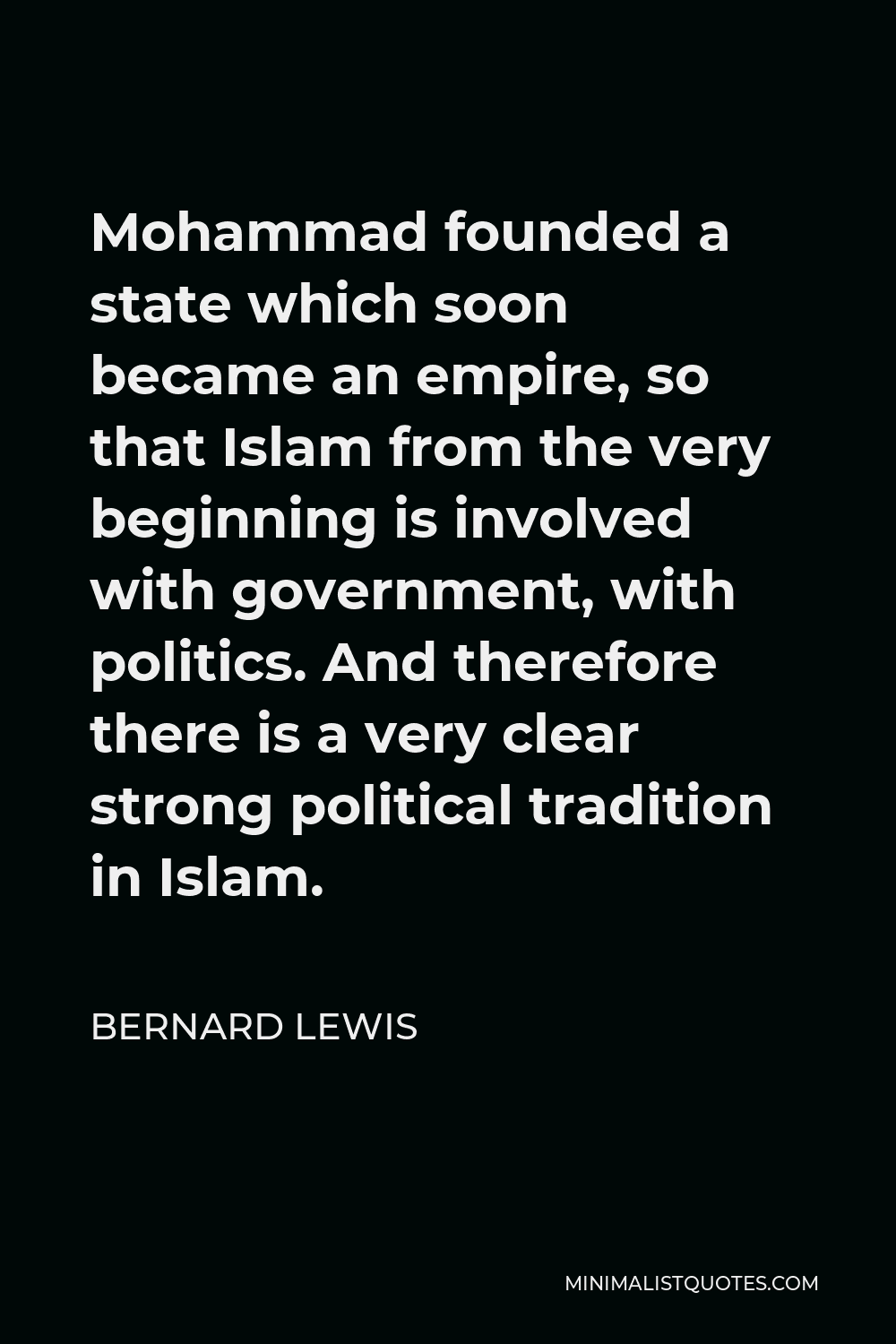
-





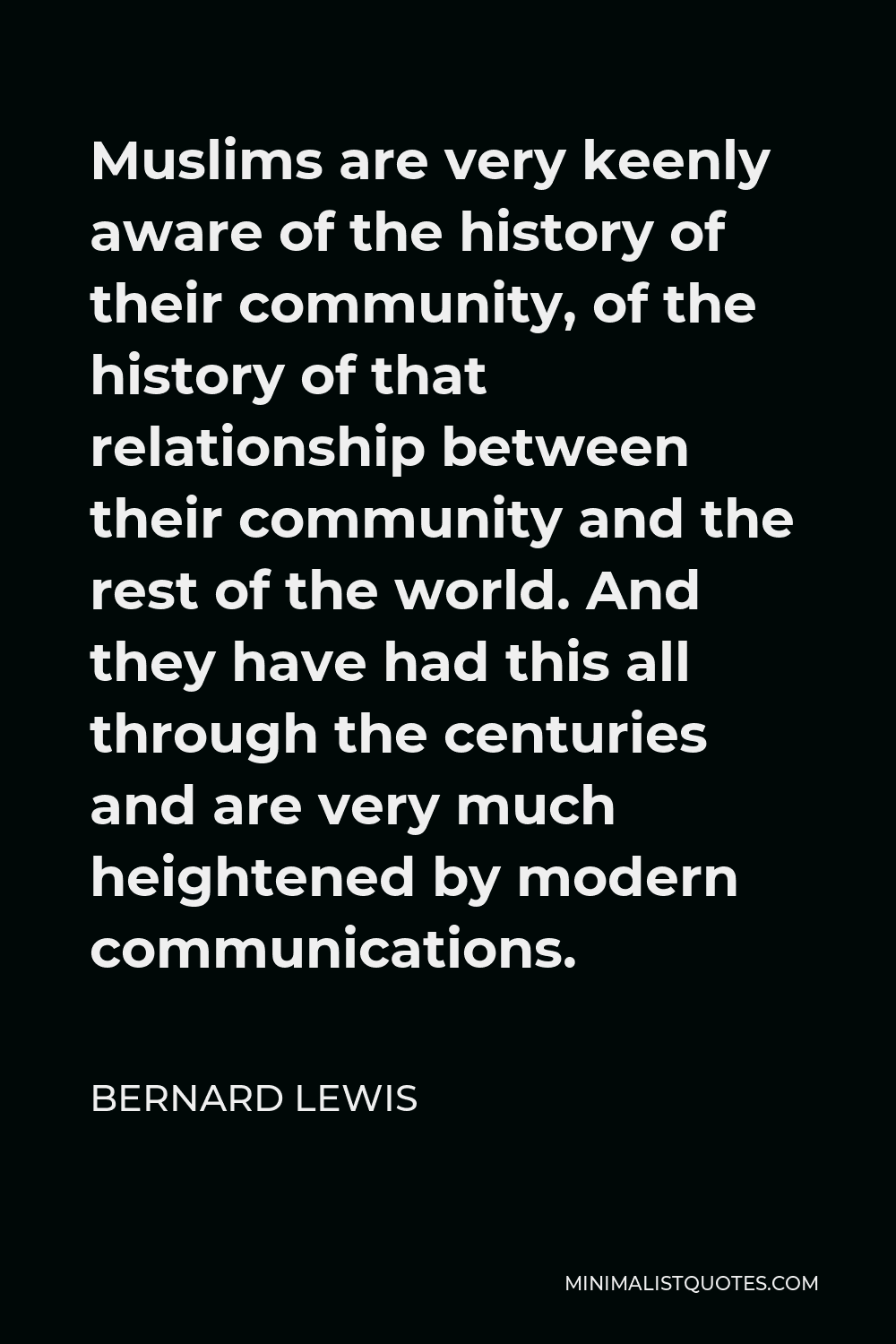
Muslims are very keenly aware of the history of their community, of the history of that relationship between their community and the rest of the world. And they have had this all through the centuries and are very much heightened by modern communications.
BERNARD LEWIS -





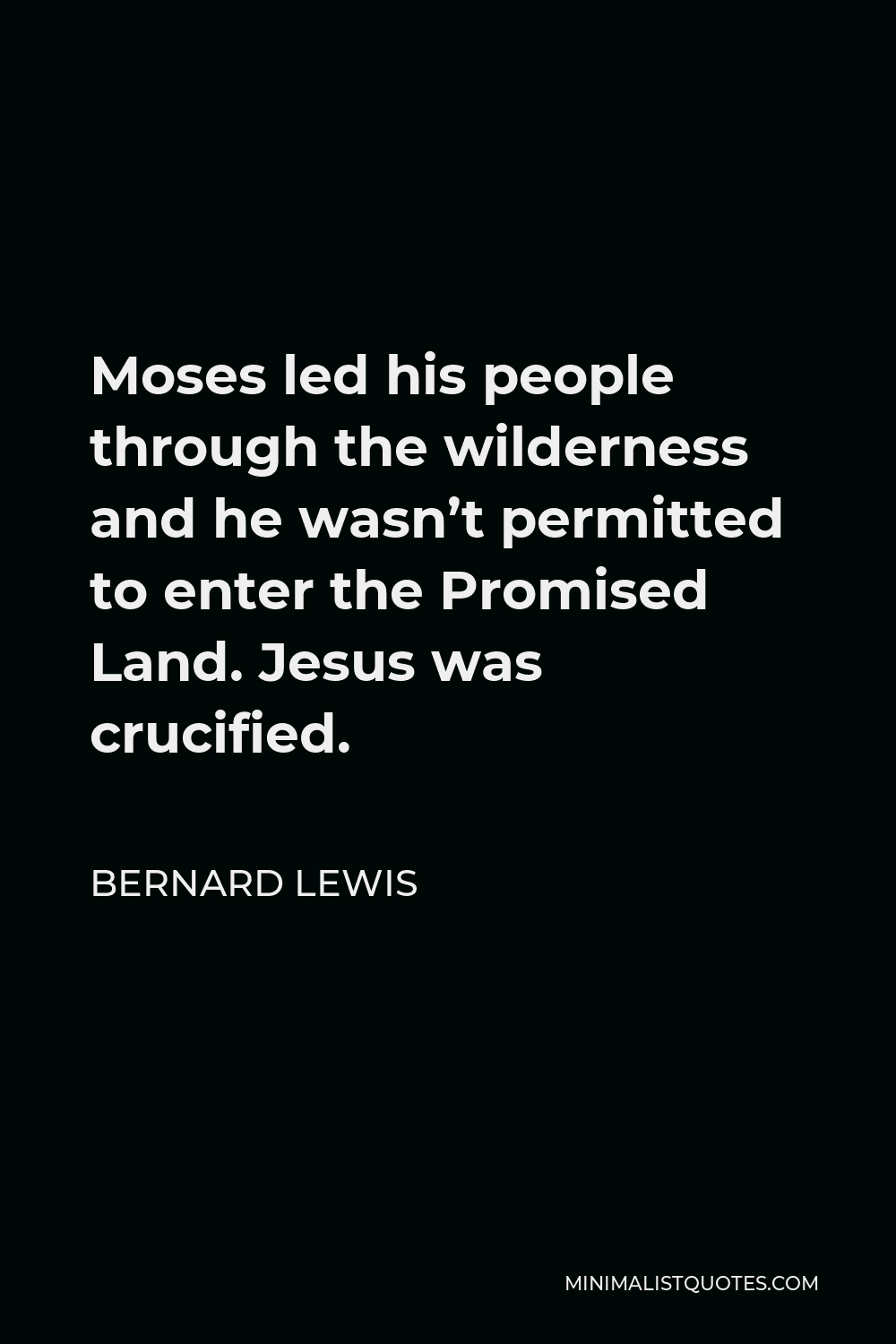
Moses led his people through the wilderness and he wasn’t permitted to enter the Promised Land. Jesus was crucified.
BERNARD LEWIS -





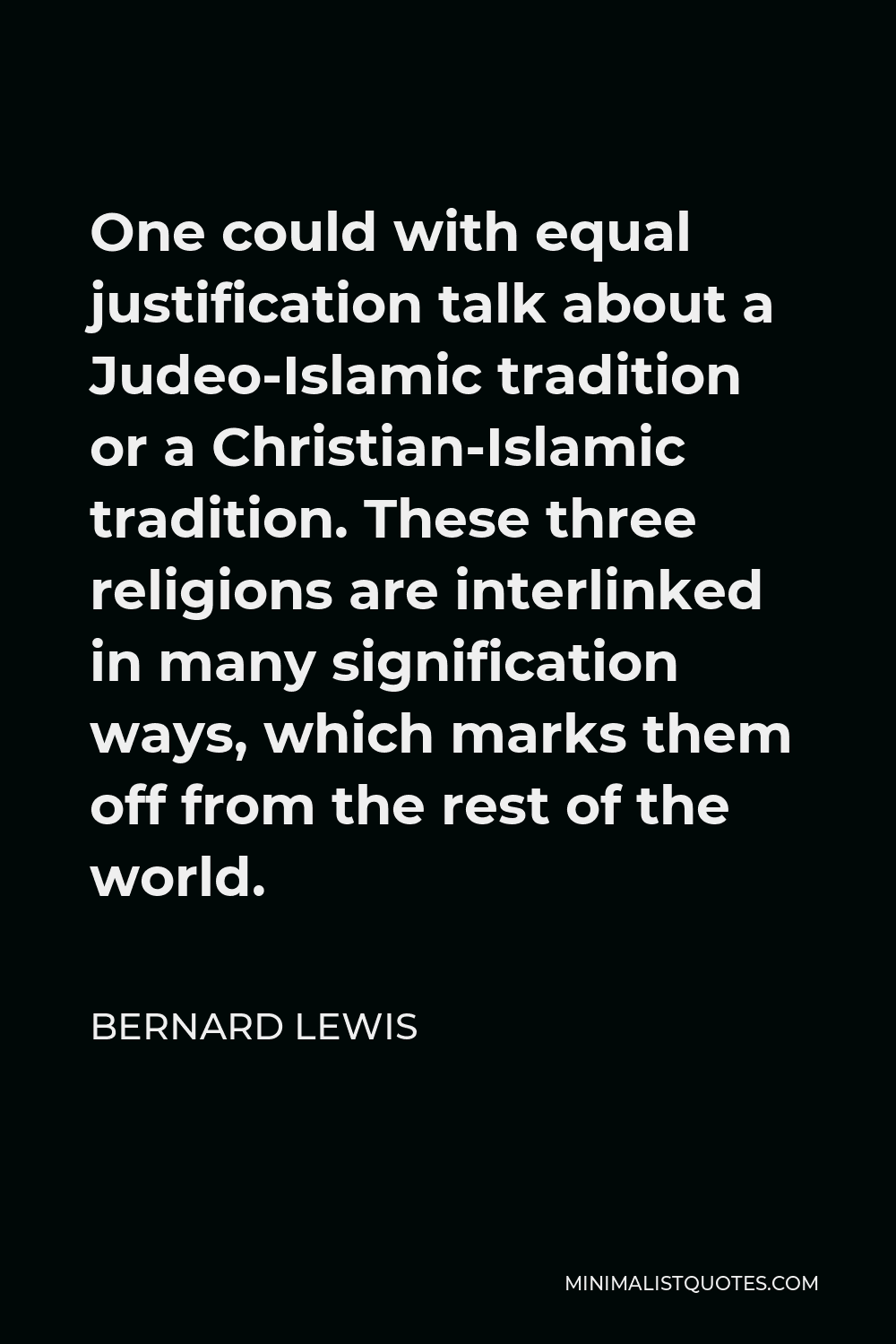
One could with equal justification talk about a Judeo-Islamic tradition or a Christian-Islamic tradition. These three religions are interlinked in many signification ways, which marks them off from the rest of the world.
BERNARD LEWIS -





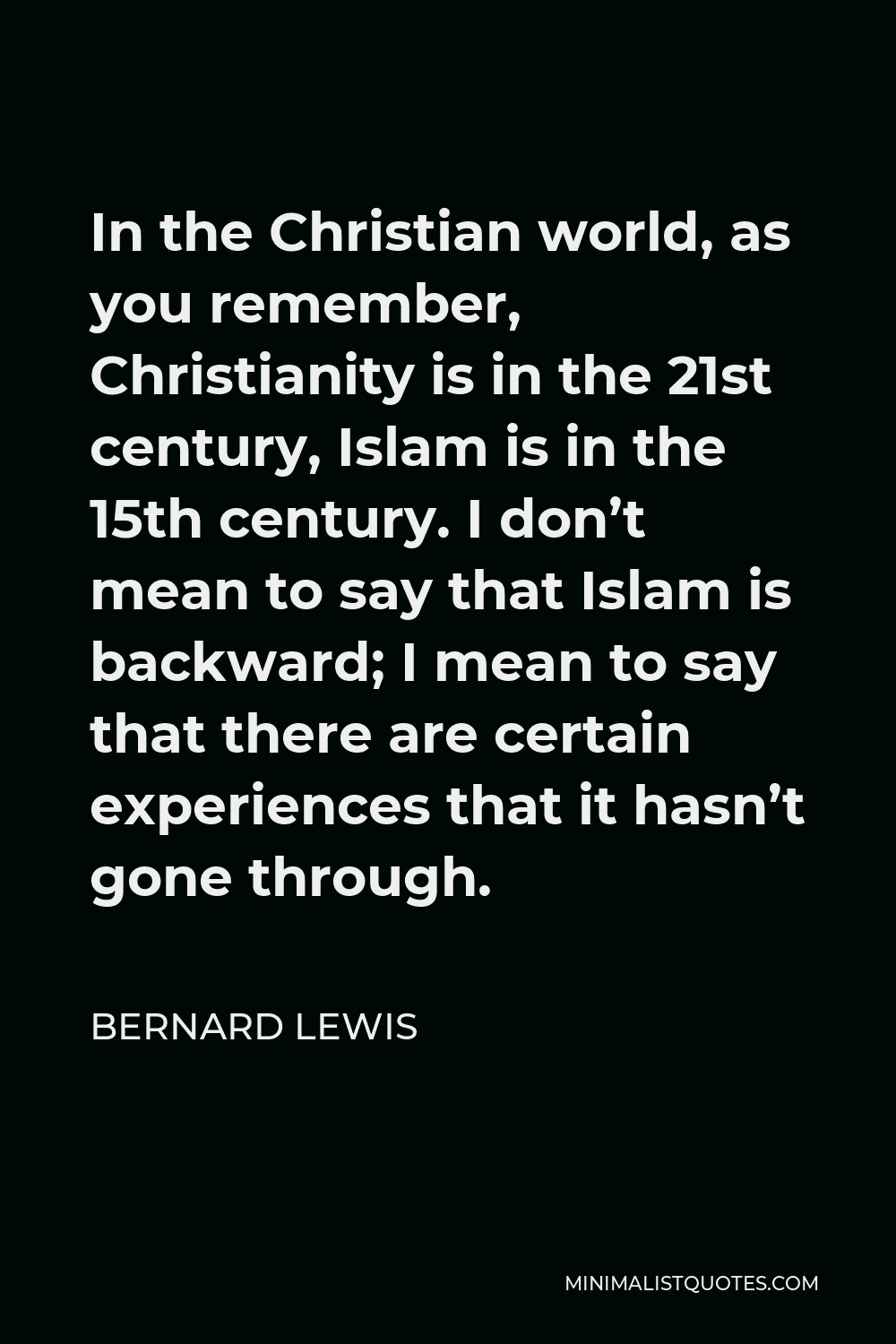
In the Christian world, as you remember, Christianity is in the 21st century, Islam is in the 15th century. I don’t mean to say that Islam is backward; I mean to say that there are certain experiences that it hasn’t gone through.
BERNARD LEWIS -





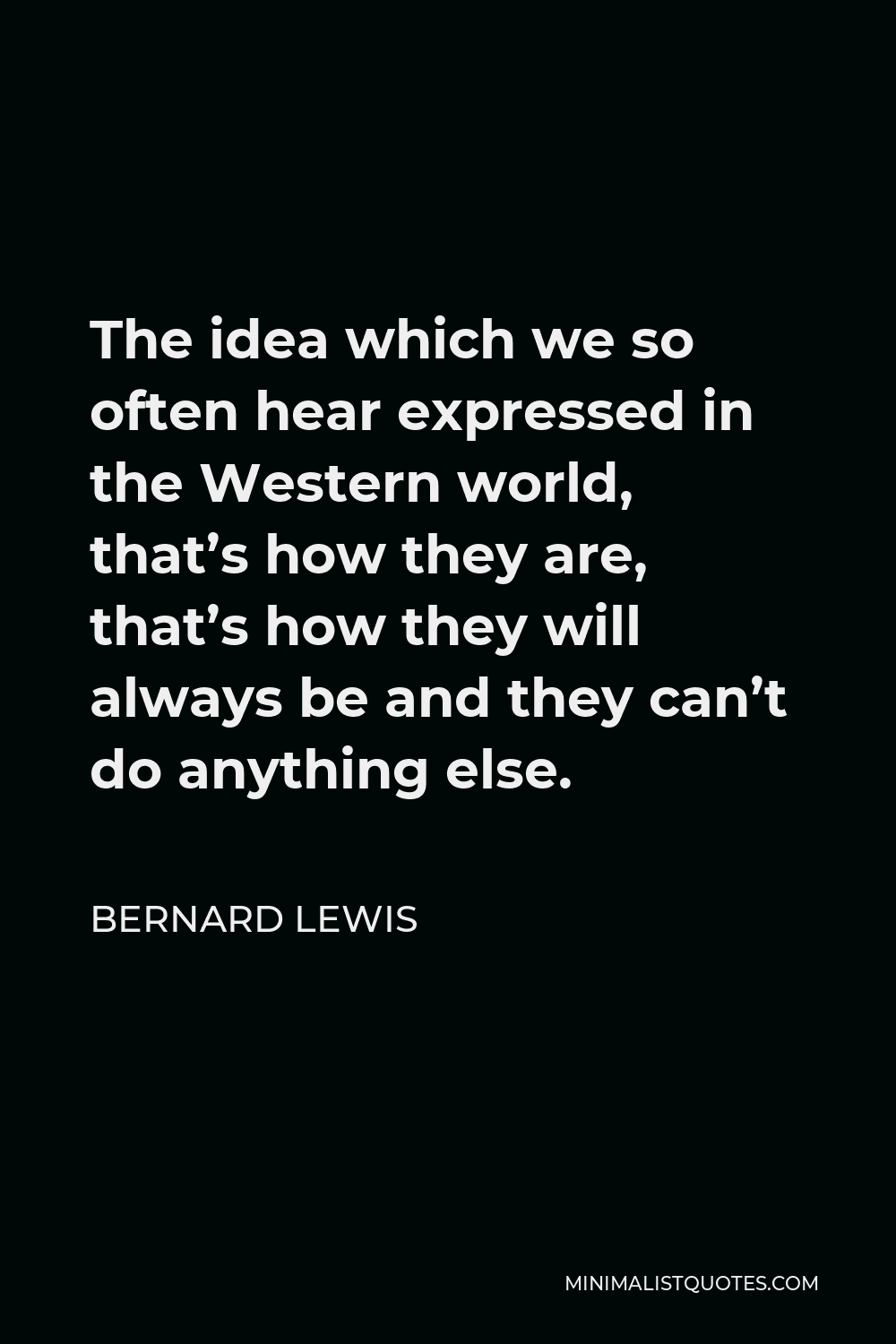
The idea which we so often hear expressed in the Western world, that’s how they are, that’s how they will always be and they can’t do anything else.
BERNARD LEWIS -





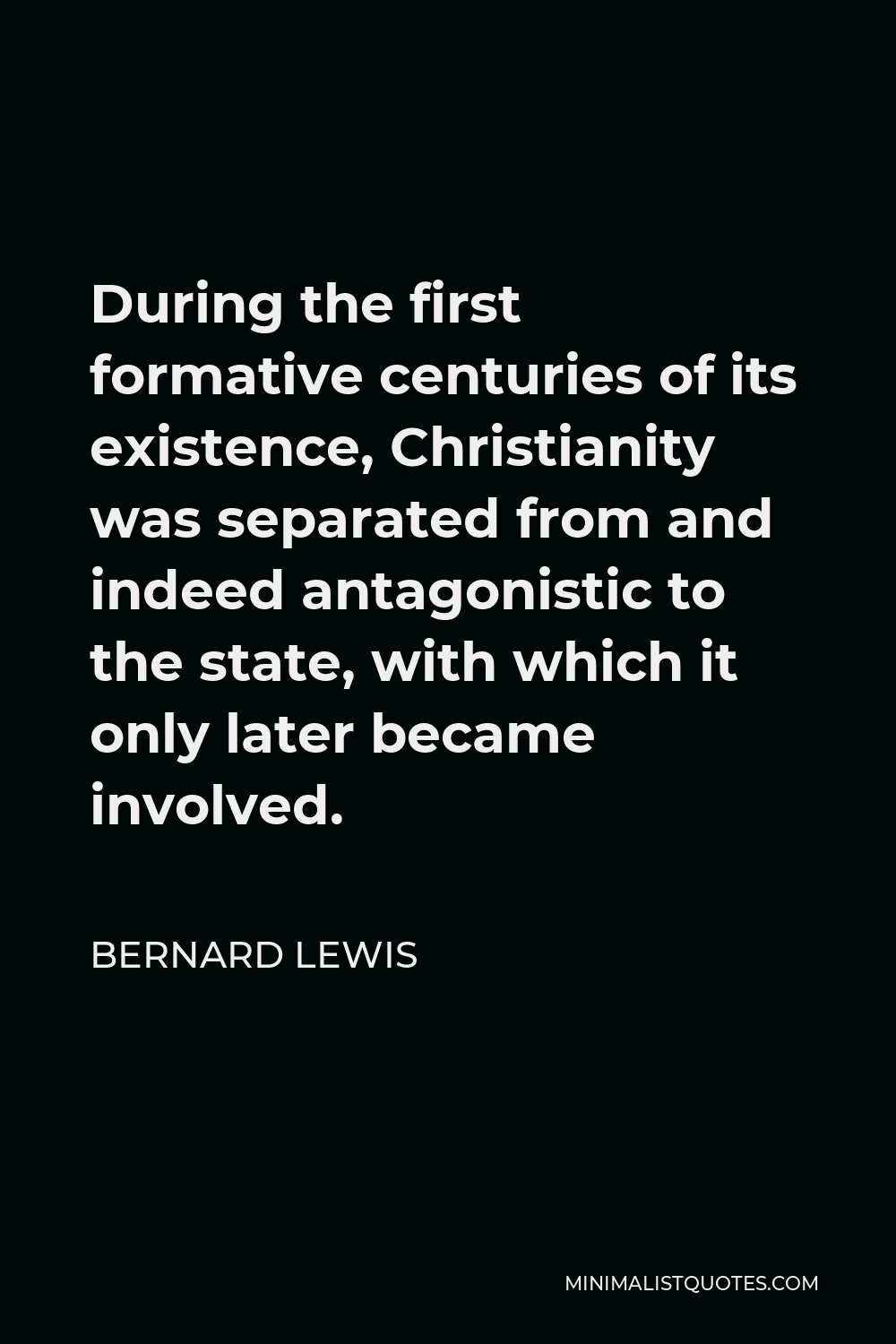
During the first formative centuries of its existence, Christianity was separated from and indeed antagonistic to the state, with which it only later became involved.
BERNARD LEWIS -





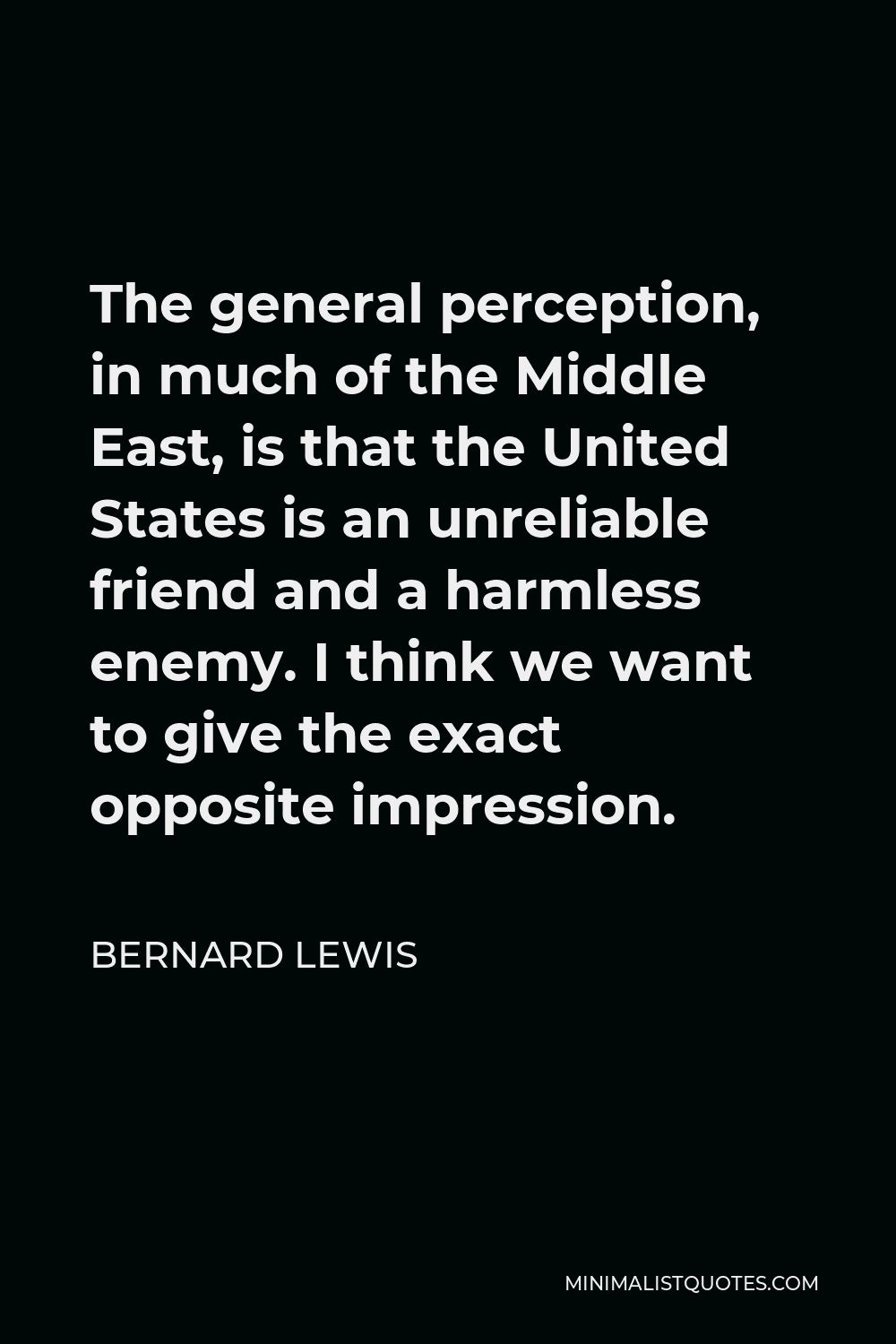
The general perception, in much of the Middle East, is that the United States is an unreliable friend and a harmless enemy. I think we want to give the exact opposite impression.
BERNARD LEWIS -





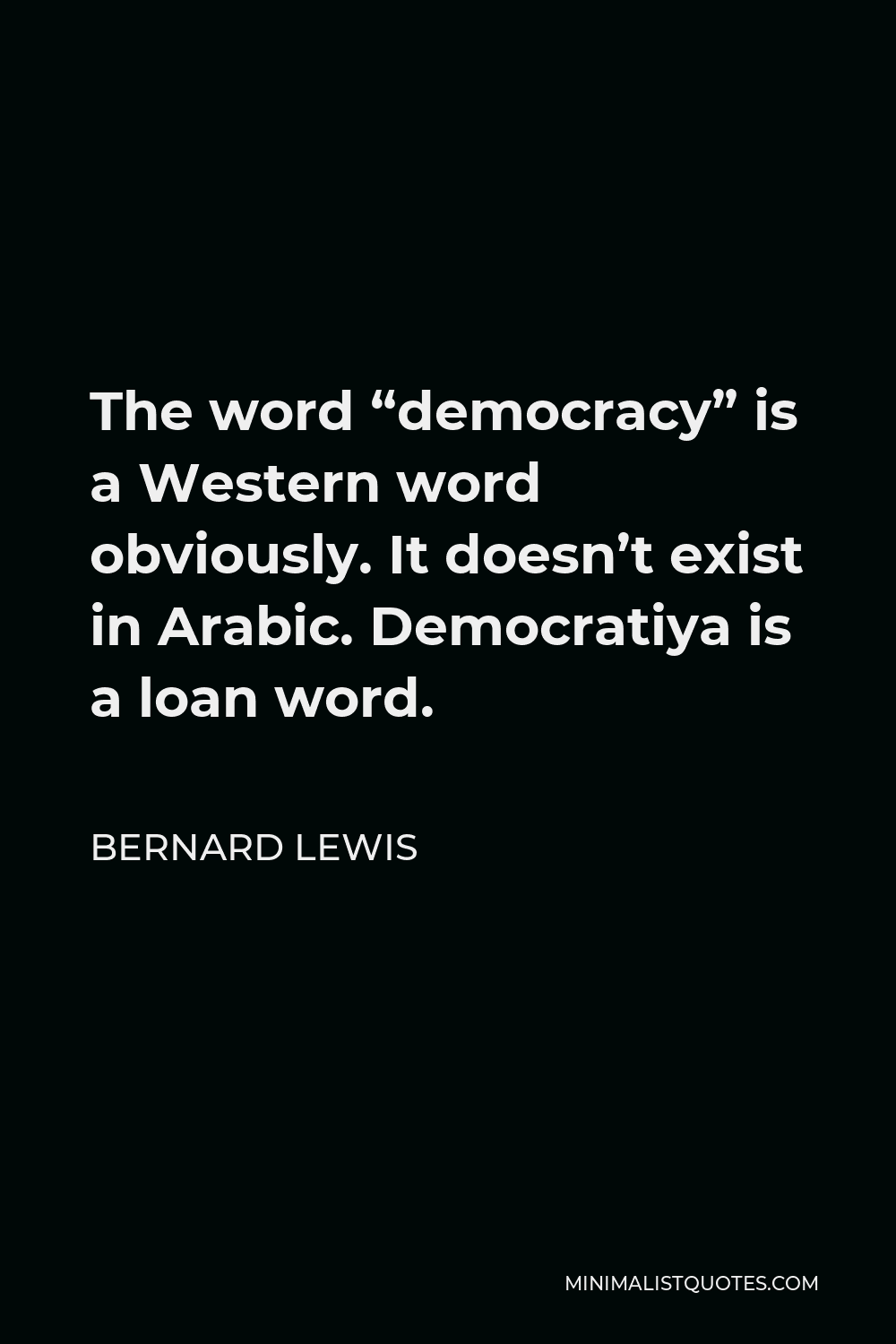
The word “democracy” is a Western word obviously. It doesn’t exist in Arabic. Democratiya is a loan word.
BERNARD LEWIS -





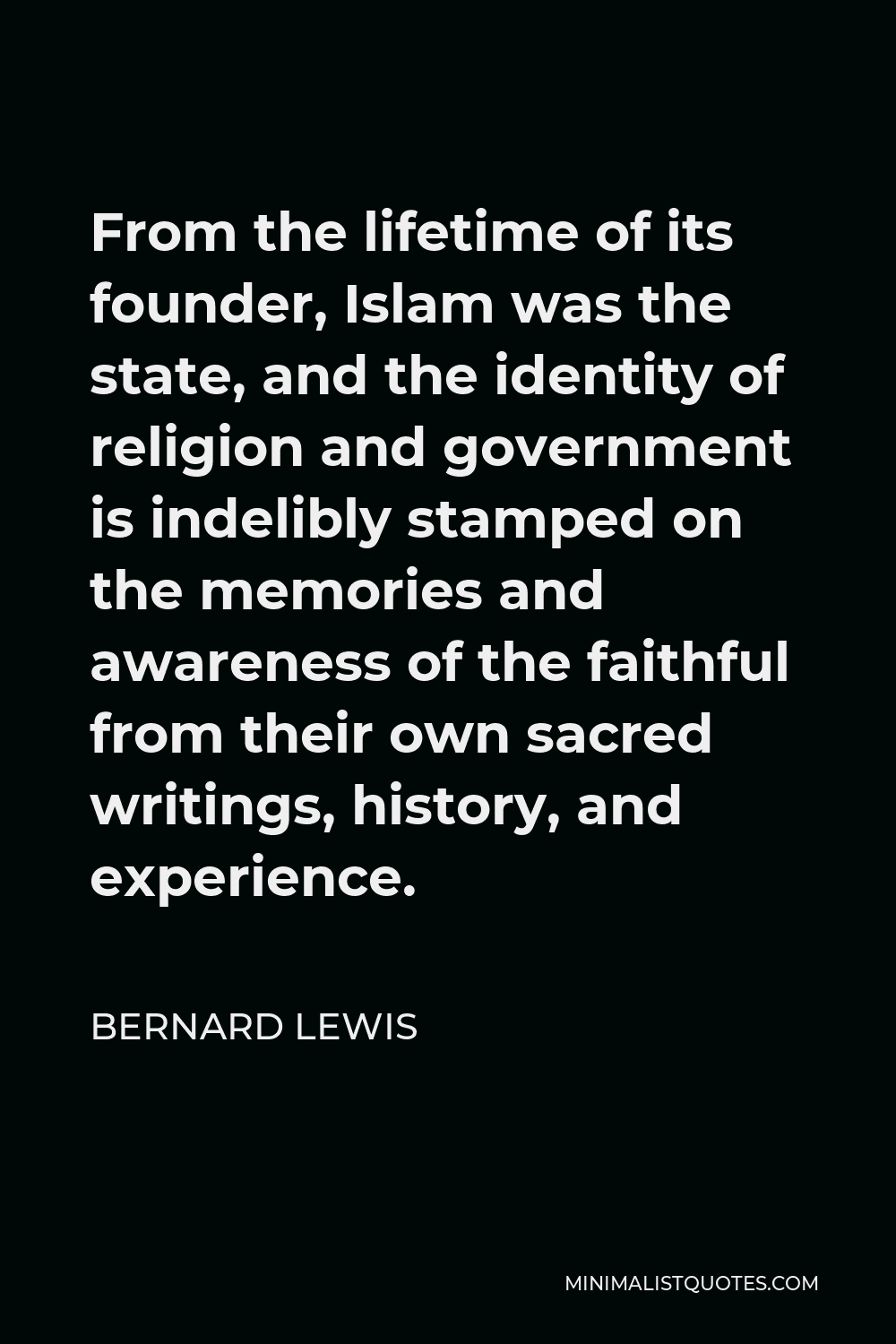
From the lifetime of its founder, Islam was the state, and the identity of religion and government is indelibly stamped on the memories and awareness of the faithful from their own sacred writings, history, and experience.
BERNARD LEWIS -





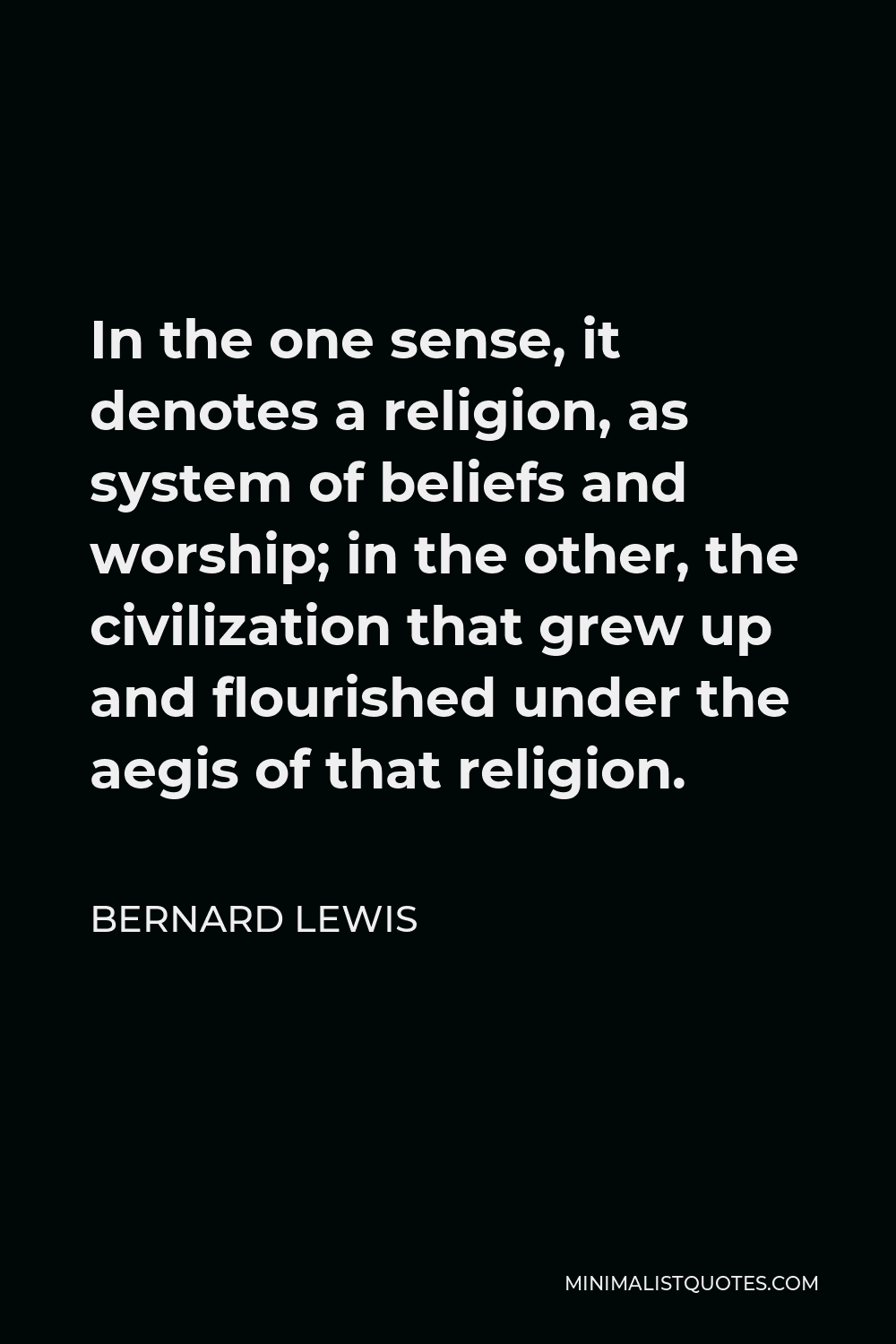
In the one sense, it denotes a religion, as system of beliefs and worship; in the other, the civilization that grew up and flourished under the aegis of that religion.
BERNARD LEWIS -





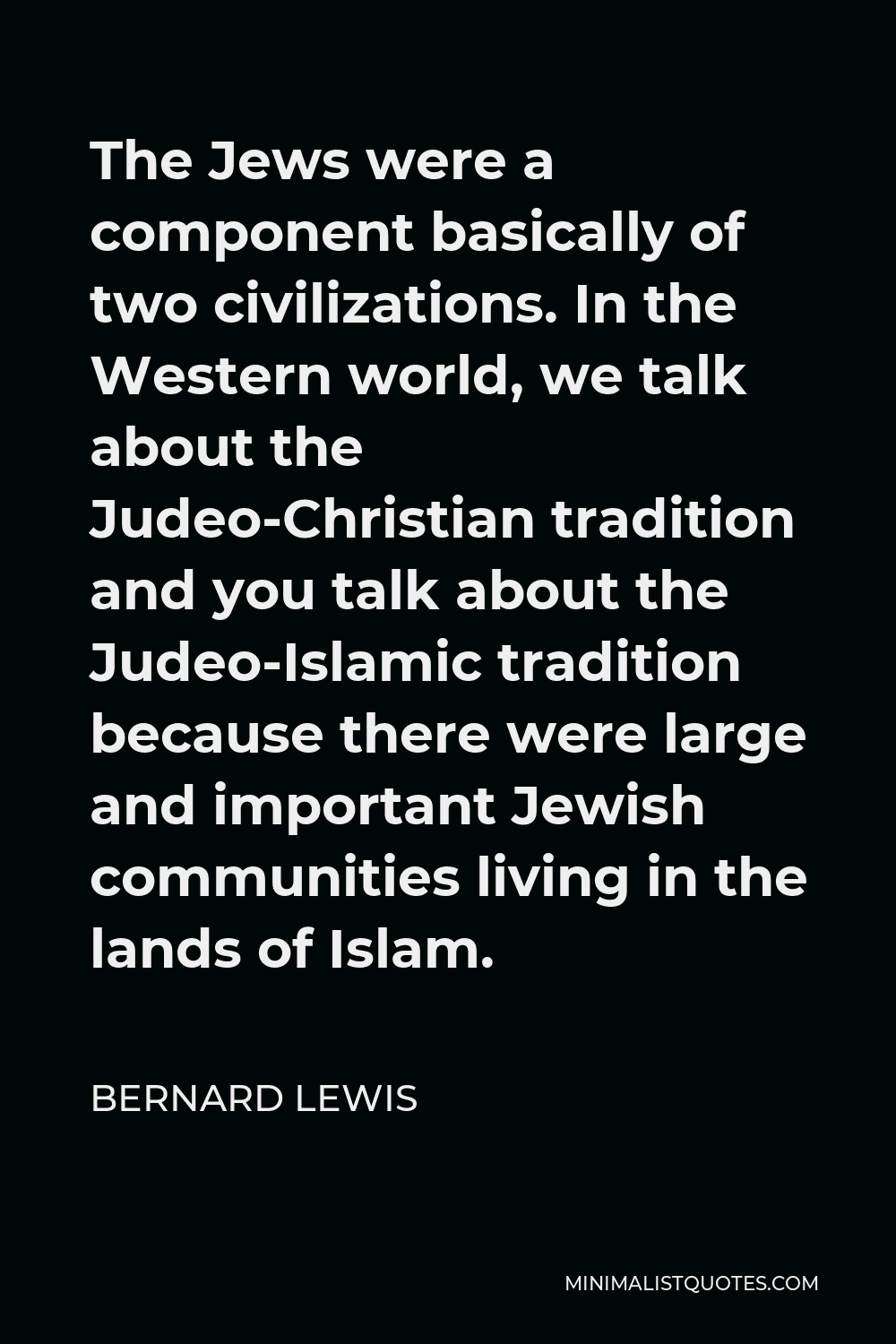
The Jews were a component basically of two civilizations. In the Western world, we talk about the Judeo-Christian tradition and you talk about the Judeo-Islamic tradition because there were large and important Jewish communities living in the lands of Islam.
BERNARD LEWIS -





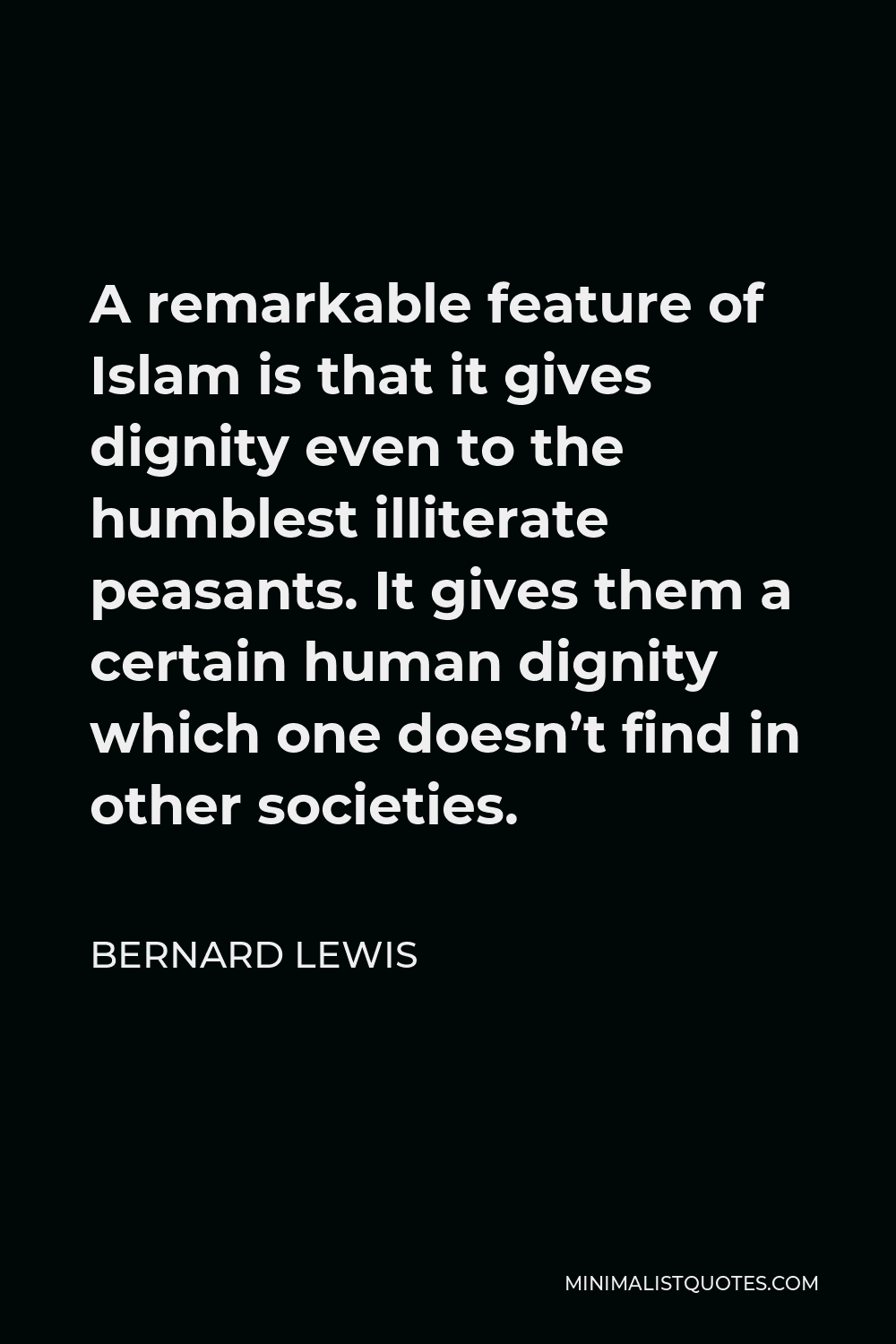
A remarkable feature of Islam is that it gives dignity even to the humblest illiterate peasants. It gives them a certain human dignity which one doesn’t find in other societies.
BERNARD LEWIS -





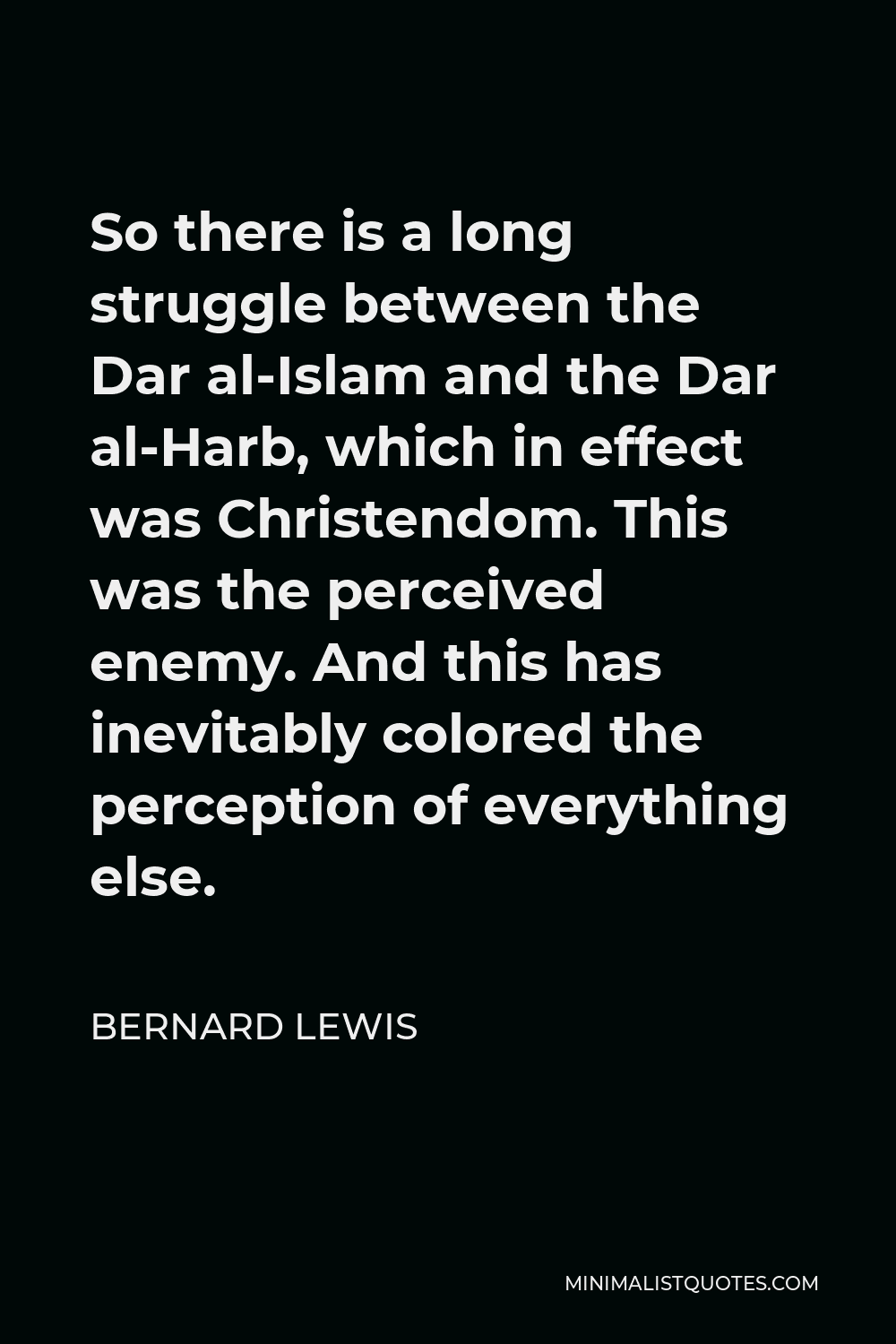
So there is a long struggle between the Dar al-Islam and the Dar al-Harb, which in effect was Christendom. This was the perceived enemy. And this has inevitably colored the perception of everything else.
BERNARD LEWIS -





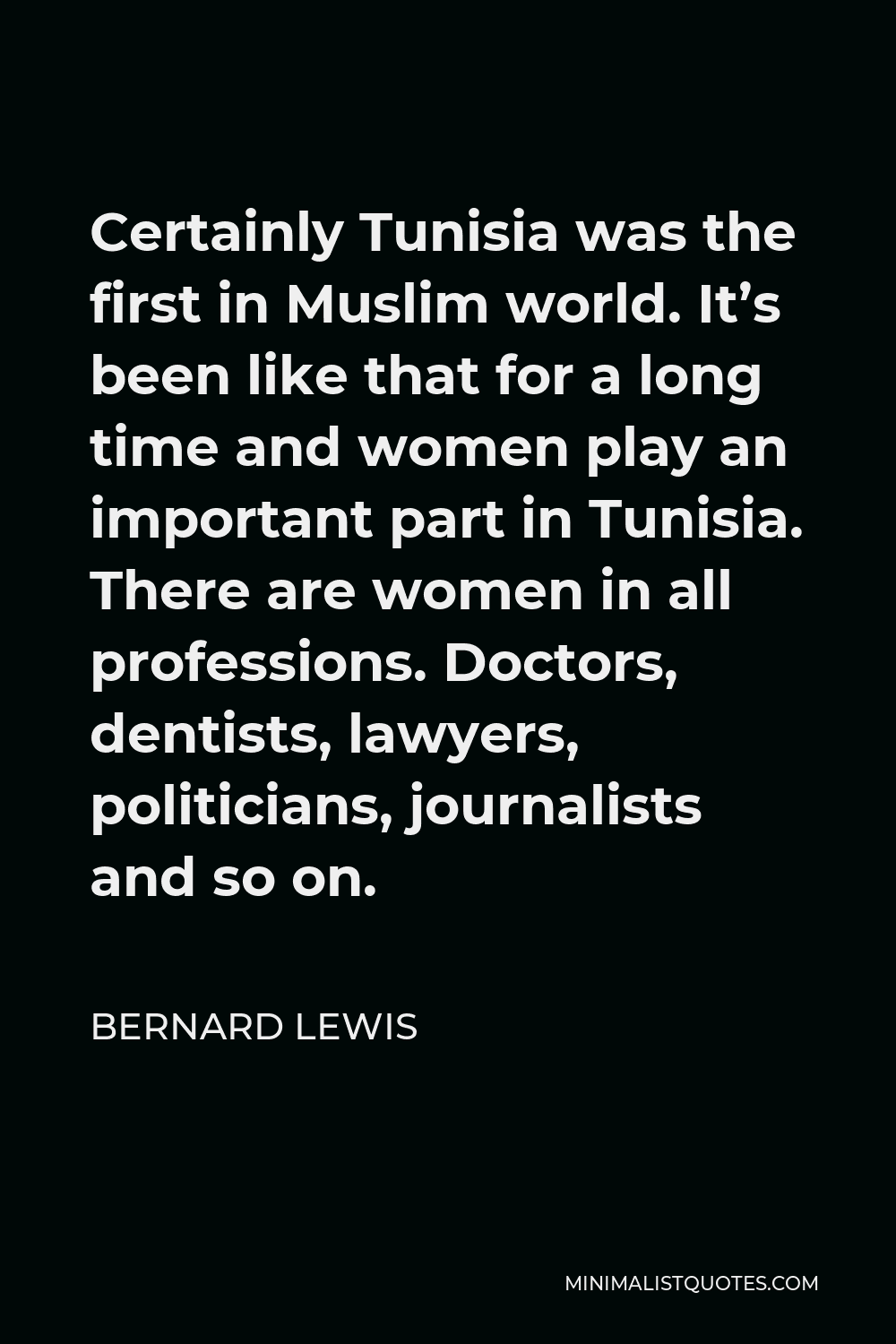
Certainly Tunisia was the first in Muslim world. It’s been like that for a long time and women play an important part in Tunisia. There are women in all professions. Doctors, dentists, lawyers, politicians, journalists and so on.
BERNARD LEWIS -





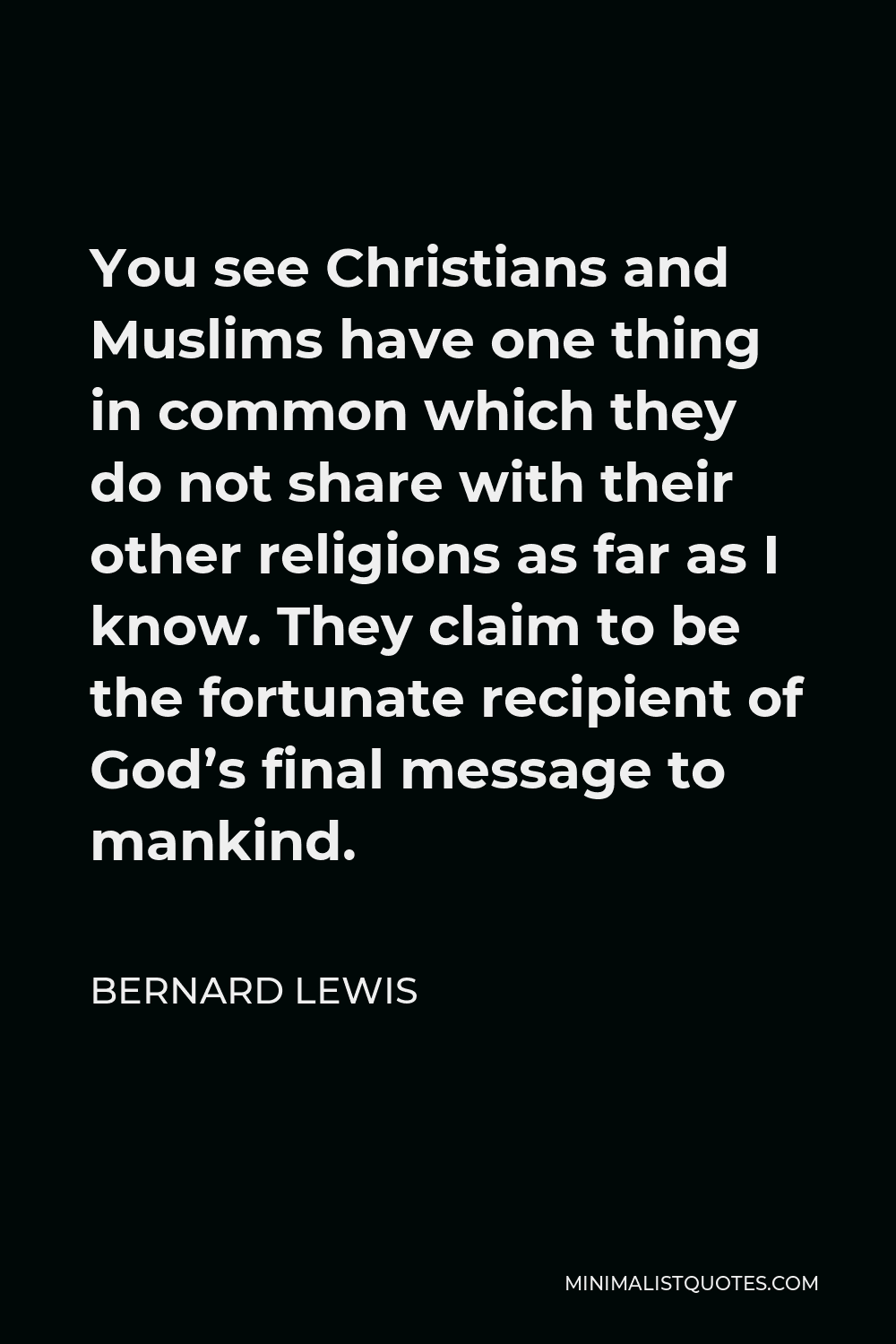
You see Christians and Muslims have one thing in common which they do not share with their other religions as far as I know. They claim to be the fortunate recipient of God’s final message to mankind.
BERNARD LEWIS

